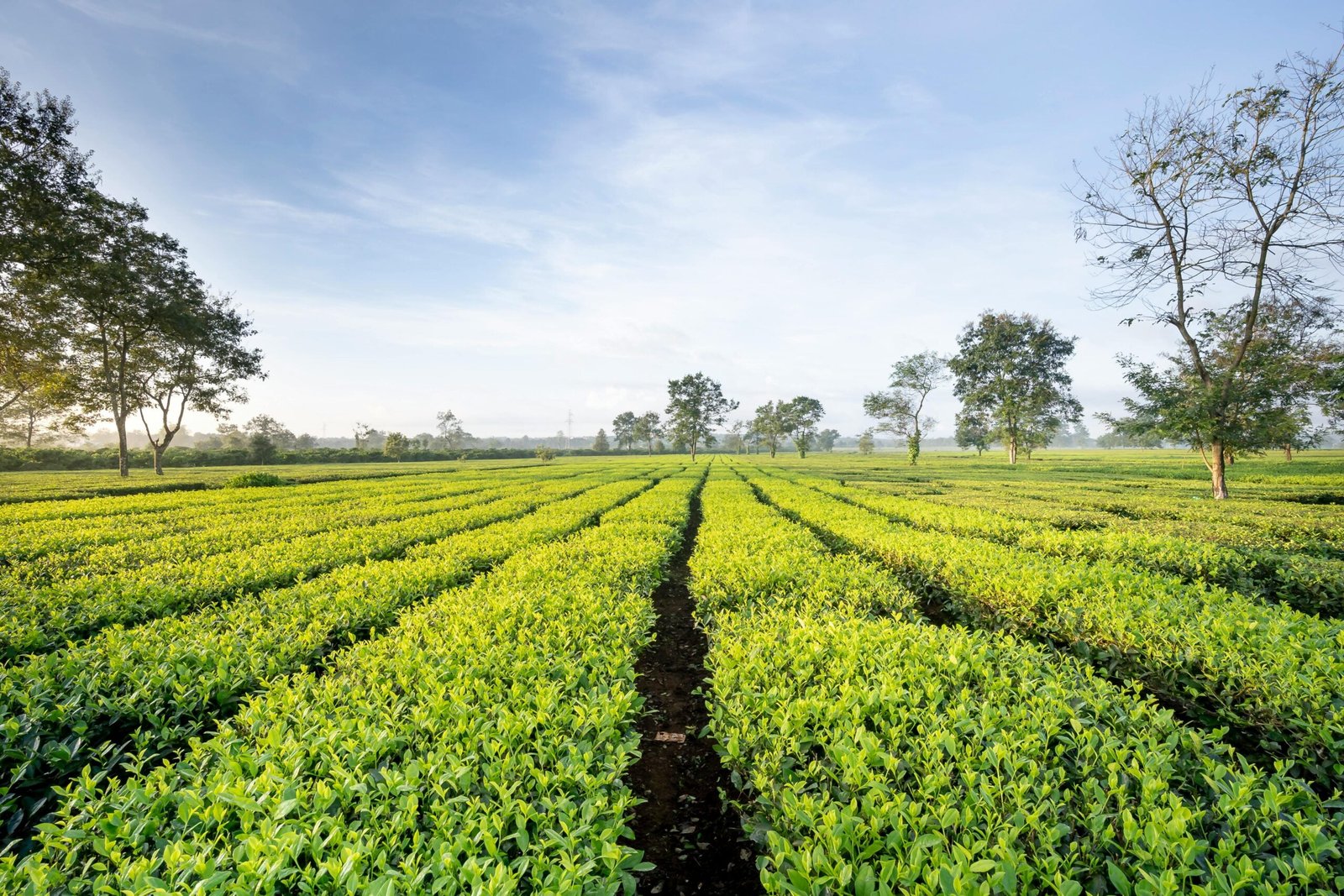
Summary of Contents
Introduction
Organic Kheti, or organic farming in India, is a method of agricultural production that emphasizes the use of natural resources and avoids the use of synthetic chemicals such as pesticides, herbicides, and artificial fertilizers. This approach aims to create a sustainable and ecologically balanced farming system that promotes biodiversity, soil health, and water conservation.
One of the primary benefits of Organic Kheti is its positive impact on human health. Organic produce is often free from harmful chemical residues that can contaminate conventional foods. Additionally, organic farming practices can lead to crops with higher nutritional value, including increased levels of antioxidants and vitamins.
Furthermore, Organic Kheti plays a crucial role in environmental sustainability. By avoiding the use of synthetic chemicals, organic farmers reduce their contribution to pollution and protect ecosystems. Organic farming practices also help to improve soil health, prevent erosion, and conserve water resources.
What is Organic Kheti?
Organic Kheti refers to the practice of growing crops without the use of synthetic fertilizers, pesticides, or genetically modified organisms (GMOs). Instead, it relies on natural inputs and methods such as composting, green manuring, crop rotation, and biological pest control. The primary goal of Organic Kheti is to maintain the health of the soil, ecosystem, and people by avoiding harmful chemicals and promoting sustainable agricultural practices.
In Organic Kheti, farmers use organic fertilizers like cow dung, vermicompost, and bio-fertilizers, which enrich the soil naturally. Pests and diseases are managed through natural predators, neem-based products, and other biological controls, rather than synthetic pesticides. This method not only ensures that the food produced is free from harmful chemicals but also helps in maintaining the ecological balance.
Furthermore, Organic Kheti plays a crucial role in environmental sustainability. By avoiding the use of synthetic chemicals, organic farmers reduce their contribution to pollution and protect ecosystems. Organic farming practices also help to improve soil health, prevent erosion, and conserve water resources.

Benefits of Organic Farming
Organic Kheti offers numerous benefits that contribute to the well-being of farmers, consumers, and the environment. Here are some of the key advantages:
1. Healthier Produce
One of the most significant benefits of Organic Kheti is that it produces healthier, chemical-free food. Organic fruits, vegetables, and grains are free from synthetic pesticide residues, making them safer for consumption. This leads to better health outcomes for consumers, particularly those vulnerable to the harmful effects of chemicals, such as children and pregnant women.
2. Environmental Sustainability
Organic Kheti promotes environmental sustainability by reducing the reliance on chemical inputs that can harm the soil, water, and biodiversity. By using natural fertilizers and pest control methods, organic farming helps maintain soil fertility, prevent water contamination, and protect wildlife habitats. It also enhances biodiversity on farms by encouraging the growth of diverse plant species and attracting beneficial insects.
3. Improved Soil Health
Organic Kheti focuses on building and maintaining healthy soil through practices like crop rotation, composting, and the use of organic fertilizers. These practices improve soil structure, increase organic matter, and enhance microbial activity, leading to better water retention and nutrient availability. Healthy soil is the foundation of productive and sustainable agriculture, and Organic Kheti helps ensure its long-term viability.
4. Economic Benefits for Farmers
While the initial transition to Organic Kheti may require some investment, it can lead to long-term economic benefits for farmers. Organic produce often commands higher prices in the market, providing farmers with better income opportunities. Additionally, by reducing dependency on expensive chemical inputs, farmers can lower their production costs and increase their profitability over time.
5. Climate Change Mitigation
Organic Kheti plays a role in mitigating climate change by promoting practices that sequester carbon in the soil and reduce greenhouse gas emissions. For example, organic farming methods like reduced tillage, cover cropping, and the use of compost can help capture carbon dioxide from the atmosphere and store it in the soil. This not only helps combat climate change but also improves soil fertility and crop resilience.
Importance of Organic Farming in India
The importance of Organic Kheti in India cannot be overstated, given the country’s large agricultural sector and growing environmental challenges. Here’s why Organic Kheti is crucial for India:
1. Ensuring Food Security
India’s growing population and increasing demand for safe, nutritious food make Organic Kheti an important strategy for ensuring food security. By producing chemical-free, nutrient-rich food, organic farming helps meet the nutritional needs of the population while minimizing health risks associated with pesticide residues.
2. Preserving Traditional Knowledge
Organic Kheti is deeply rooted in India’s traditional farming practices, which have been passed down through generations. By embracing organic farming, India can preserve and revive these traditional methods, ensuring that valuable agricultural knowledge is not lost. This also promotes the use of indigenous seeds and practices that are well-suited to local conditions.
3. Protecting the Environment
India faces numerous environmental challenges, including soil degradation, water scarcity, and loss of biodiversity. Organic Kheti addresses these issues by promoting sustainable farming practices that conserve natural resources and protect the environment. This is particularly important in regions where conventional farming practices have led to significant environmental degradation.
4. Supporting Rural Livelihoods
Agriculture is the primary source of livelihood for millions of people in rural India. Organic Kheti offers a way to improve the livelihoods of small and marginal farmers by providing access to premium markets and reducing input costs. By supporting Organic Kheti, India can enhance the economic stability of its rural communities and reduce poverty.

Government Schemes Supporting Organic Farming
The Indian government has recognized the potential of Organic Kheti and has implemented several schemes to promote and support it. Some of the key schemes include:
1. Paramparagat Krishi Vikas Yojana (PKVY)
Launched in 2015, the Paramparagat Krishi Vikas Yojana (PKVY) aims to promote organic farming across India. The scheme provides financial assistance to farmers for adopting organic practices, including the purchase of organic inputs and certification costs. PKVY also supports the formation of farmer groups and clusters to facilitate collective organic farming and marketing.
2. Mission Organic Value Chain Development for North Eastern Region (MOVCDNER)
The Mission Organic Value Chain Development for North Eastern Region (MOVCDNER) is a region-specific scheme designed to promote organic farming in the North East. It focuses on developing organic value chains, from production to marketing, and provides support for organic certification, training, and infrastructure development.
3. National Programme for Organic Production (NPOP)
The National Programme for Organic Production (NPOP) is the regulatory framework for organic farming in India. It sets the standards for organic production, certification, and labeling, ensuring that organic products meet both domestic and international standards. The NPOP also facilitates the export of organic products from India.
4. Rashtriya Krishi Vikas Yojana (RKVY)
The Rashtriya Krishi Vikas Yojana (RKVY) is a comprehensive scheme that supports various aspects of agricultural development, including organic farming. Under RKVY, states have the flexibility to design and implement organic farming projects that cater to their specific needs, with funding and technical support from the central government.
The Future of Organic Farming in India
The future of Organic Kheti in India looks promising, as awareness about the benefits of organic farming continues to grow. Several factors are likely to drive the expansion of Organic Kheti in the coming years:
1. Increasing Consumer Demand
As more consumers become aware of the health and environmental benefits of organic food, demand for organic products is expected to rise. This demand will encourage more farmers to adopt Organic Kheti, leading to an increase in the area under organic cultivation.
2. Technological Advancements
Advances in technology and research are likely to make Organic Kheti more accessible and efficient. Innovations in organic inputs, pest management, and soil health monitoring will help farmers overcome challenges and improve productivity. Additionally, digital platforms can facilitate better market access for organic produce, connecting farmers directly with consumers.
3. Government Support and Policy Initiatives
Continued government support through schemes, subsidies, and policies will play a crucial role in the growth of Organic Kheti. The government’s focus on sustainable agriculture and its commitment to doubling farmers’ incomes by 2022 are likely to boost organic farming initiatives across the country.
4. Global Market Opportunities
India’s organic products are gaining recognition in international markets, opening up new export opportunities for Indian farmers. By maintaining high standards of organic certification and quality, India can strengthen its position as a leading exporter of organic produce, further incentivizing farmers to adopt Organic Kheti.
Organic Kheti in Northeast India
Northeast India, with its diverse topography and climatic conditions, presents unique opportunities for organic farming. The region’s fertile soil, abundant rainfall, and rich biodiversity make it ideal for growing a wide range of organic crops. Organic farming practices can help to preserve the region’s unique agricultural heritage and contribute to its sustainable development.
The Northeast Indian states of Assam, Arunachal Pradesh, Meghalaya, Manipur, Mizoram, Nagaland, and Tripura have been actively promoting organic farming initiatives. These initiatives include providing training and support to farmers, establishing organic markets, and developing value-added organic products. By embracing organic farming, the Northeast can not only produce high-quality, healthy food but also contribute to the overall sustainability of the region.
Organic farming in Northeast India has been gaining momentum. Many farmers are realizing the benefits of organic agriculture, including improved soil health, reduced dependence on chemical inputs, and increased resilience to climate change. By supporting organic farming initiatives, the Northeast can create a more sustainable and prosperous agricultural sector.

Conclusion
Organic Kheti in India represents a vital shift towards sustainable agriculture, offering numerous benefits for farmers, consumers, and the environment. With strong government support, increasing consumer demand, and a rich tradition of sustainable farming practices, the future of Organic Kheti in India looks bright. By embracing organic farming, India can ensure food security, protect the environment, and improve the livelihoods of millions of farmers, paving the way for a healthier and more sustainable future.
FAQ Section
What is the meaning of organic kheti?
Organic Kheti is a Sanskrit term that translates to “organic farming” in English. It refers to a method of agricultural production that emphasizes the use of natural resources and avoids the use of synthetic chemicals, such as pesticides, herbicides, and artificial fertilizers. The primary goal of Organic Kheti is to maintain the health of the soil, ecosystem, and people by promoting sustainable agricultural practices.
How to start organic kheti?
To start Organic Kheti, farmers can begin by transitioning their conventional farms to organic practices gradually. This involves implementing natural pest control methods, using organic fertilizers, and avoiding the use of synthetic chemicals. It is also essential to obtain organic certification from a recognized body to ensure that the produce meets the standards set for organic farming.
What is 100% organic farming?
100% organic farming refers to agricultural practices that strictly adhere to organic standards and avoid the use of any synthetic inputs whatsoever. This includes not only the production of crops but also the processing, handling, and storage of the produce. To achieve 100% organic certification, farmers must maintain detailed records of their farming practices and undergo regular inspections.
Is organic kheti profitable?
Organic kheti can be profitable, but it requires careful planning and management. While organic products often command premium prices, the higher costs associated with organic practices can impact profitability. Factors such as market demand, crop selection, farming practices, and government support play a significant role in determining the economic viability of organic farming. However, with increasing consumer awareness of the benefits of organic produce and government initiatives to promote organic agriculture, the profitability of organic farming is on the rise in India.
